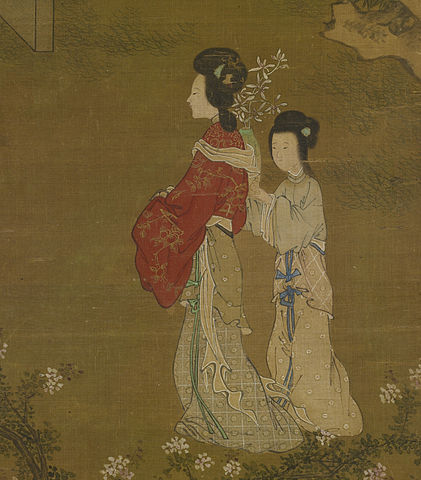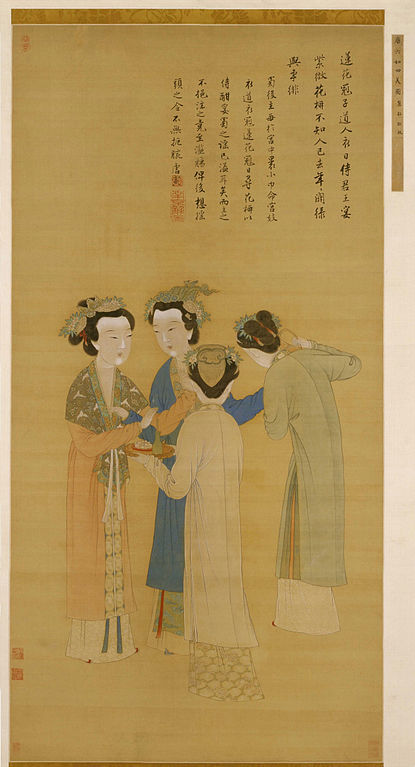
Thammasat University students interested in law, gender studies, sociology, political science, Chinese studies, and related subjects may find it interesting to participate in a free 28 July book talk on Decoupling: Gender Injustice in China’s Divorce Courts.
The event is organized by the Faculty of Law and Centre for Comparative and Public Law of the Department of Law, The University of Hong Kong (HKU).
The TU Library collection includes several books about different aspects of marriage and divorce in China.
The speaker will be Professor Ethan Michelson who teaches sociology at Indiana University Bloomington, the United States of America. Professor Michelson is author of the book Decoupling: Gender Injustice in China’s Divorce Courts, an Open Access publication available for free download at this link:
https://www.cambridge.org/core/books/decoupling/505E2B8DBFBBD6668F9DC21297788CBE
Discussants will include Associate Professor Sida Liu, who teaches sociology at the University of Toronto, Canada, and Assistant Professor Qian Liu, who teaches sociology at the University of Calgary, Canada.
The event’s chair will be Assistant Professor Ying Xia, who teaches at the Department of Law, HKU.
As the event description posted online notes,
Ethan Michelson’s book analyzes almost 150,000 divorce trials in China and reveals routine and egregious violations of China’s own laws upholding the freedom of divorce, gender equality, and the protection of women’s physical security. Using ‘big data’ computational techniques to scrutinize cases covering 2009–2016 from all 252 basic-level courts in two Chinese provinces, Henan and Zhejiang, Michelson reveals that women have borne the brunt of a dramatic intensification since the mid-2000s of a decades-long practice of denying divorce requests. This book takes the reader upstream to the institutional sources of China’s clampdown on divorce and downstream to its devastating and highly gendered human toll, showing how judges in an overburdened court system clear their oppressive dockets at the expense of women’s lawful rights and interests.
The event will be held on Thursday, 28 July 2022 at 8pm Bangkok time.
To register, students are invited to go to this link.
For further information or with any questions, please write to the following email address:
pxto@hku.hk

Professor Michelson’s book explains
the protracted and sometimes futile uphill struggle of China’s mostly female divorce plaintiffs, whose petitions will almost certainly fail at first – even in cases involving domestic violence, regardless of the severity of the allegations or the strength of the evidence.1 Many plaintiffs give up on litigation, either resigning themselves to staying married to their abusers or pursuing divorce through civil government channels outside the court system. Of those who do return to court, most will eventually succeed, albeit sometimes only after multiple attempts and long delays. My key tasks in this book are to trace the origins and chronicle the consequences of this highly institutionalized practice of denying first time petitions, which I call the “divorce twofer” because a court typically grants a divorce only after trying the same case twice. Obtaining a divorce after two (or more) attempts is no bargain for litigants, but, as we shall see later, denying divorce petitions has helped judges in a variety of ways. Courts and judges have enjoyed divorce litigation’s “two for the price of one” quality, for which female plaintiffs have paid dearly. The divorce twofer’s benefits to courts and judges have come at the expense of gender justice. As I studied tens of thousands of courts’ written divorce decisions, I was struck both by the high prevalence of domestic violence. Throughout this book I use the term “domestic violence” instead of “intimate partner violence” because the scope of analysis is almost exclusively limited to married couples and by judges’ tendency to ignore them. I was surprised by the ubiquity of judges’ brazen and inscrutable disregard for plaintiffs’ well-documented claims of domestic violence. I was mystified by how commonly judges denied divorce petitions on the grounds that mutual affection had not broken down and reconciliation remained possible despite admissible evidence of horrific spousal abuse. A remarkable feature of Chinese court rulings to deny divorce petitions is the overwhelming extent to which they are based on judges’ arbitrary assessments of the strength of the marital foundation and speculative prognostications about litigants’ reconciliation prospects. For this reason, the divorce twofer extends unabated to cases involving domestic violence. I was equally amazed to find that judges’ tendency to deny first attempt divorce petitions had increased dramatically beginning in the mid-2000s. In some ways, the contemporary struggle is a throwback to the Mao era when divorce was notoriously difficult. To my dismay, I discovered that, among all divorce-seekers, women have been hugely disadvantaged not only in their prospects of obtaining a divorce on the first try but also in gaining child custody. Women have borne the brunt of this judicial clampdown on divorce. Their formidable difficulties thus harken even further back to China’s imperial days. These parallels to earlier periods, however, are strictly confined to courts. The Sisyphean character of divorce litigation stands in stark contrast to a relatively quick and simple administrative pathway to uncontested divorce in the Civil Affairs Administration, which accounts for the vast majority of China’s divorces. Indeed, the liberalization in 2003 of this extrajudicial pathway helped triple China’s crude divorce rate within 15 years. A prerequisite of divorcing outside of court, however, is mutual consent – and agreement on all terms. Most divorce cases brought to court, therefore, are contested. A considerable share of them have been filed by women making allegations of domestic violence. Why have courts become averse, and increasingly so, to granting first-attempt divorce petitions? Why have judges remained so unmoved by domestic violence allegations? Why have women’s divorce litigation outcomes been so much worse than men’s? These are the questions I set out to answer in this book… Since the 1980s, the law has fully empowered judges to grant a divorce on the fault-based grounds of domestic violence. Although the term “domestic violence” debuted in Chinese law in 2001, earlier legal provisions extended protections – particularly to women and children – against “maltreatment” and “abuse,” and provided the right to divorce on this basis. Ambiguities in the law, however, have also provided a way out for judges disinclined to grant a divorce. Most judges tend to privilege breakdownism over faultism. Rather than affirming the breakdown of mutual affection on the basis of statutory wrongdoing, judges tend to do the opposite: they sideline plaintiffs’ fault-based claims and rule to preserve abusive marriages by determining that the litigants’ marital discord can be fixed and that mutual affection has therefore not completely broken down. Denying divorce petitions solves a lot of problems for judges, who face pressures from many sources, perhaps the least of which is the law. Chinese judges are rewarded and punished according to how well they support the court system’s dual imperative to maximize judicial efficiency and minimize social unrest.

(All images courtesy of Wikimedia Commons)
